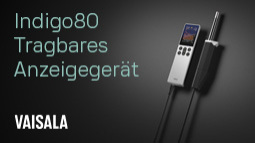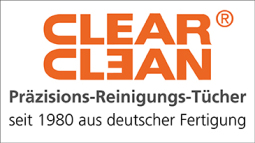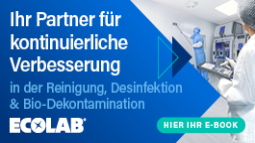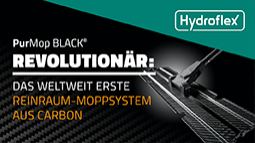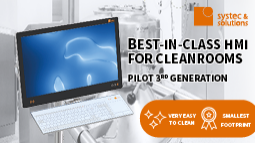Intelligent Solutions for more Quality and Process Consistency
ENGEL at Plast 2018 in Milan
Consistent quality, permanent availability, maximum output – it takes more than reliable machines to securely achieve these criteria of success. The perfect interplay between injection moulding machine and process technology, automation and periphery, digitalisation and networking is what allows plastics processors to fully utilise efficiency and quality potentials and continuously increase their competitive edge. At the Plast 2018 in Milan, Italy, from May 29 to June 1, the injection moulding machine manufacturer and systems solution provider ENGEL will present challenging injection moulding applications and multiple Expert Corners to demonstrate how this looks in practice.
Automotive: In-mould coating for high-gloss and scratch-proof exterior parts
At the Plast 2018, ENGEL will bring the evolved clearmelt in-mould coating technology to Italy for the first time. When it comes to the integrated process for the extremely efficient production of high-quality surfaces, automobile manufacturers have so far focused mainly on vehicle interior applications. However, at its booth in Milan ENGEL will be producing D-pillars for a SUV model. The high-gloss exterior claddings will be produced painted alternately in black and metallic silver on an ENGEL duo 2460/500 injection moulding machine. In addition to the extremely high quality appearance of the components, extremely scratchproof surfaces are another advantage that clearmelt technology provides for the exterior area. Testing in a car wash has shown the sample parts to be very robust.
In the clearmelt process, at first a thermoplastic base carrier is produced in the injection moulding machine, then coated in polyurethane in the second cavity of the same mould. The process can be easily combined with IML, allowing for the use of decorative and capacitive foils as well as wood veneers. In a single step, clearmelt technology thus provides pre-finished vehicle components that do not need to be varnished or post-processed in any way. The polyurethane topcoat provides the high degree of gloss and the scratch resistance. clearmelt is currently the only process on the market that delivers various surface structures, scratchproof and ready for installation. Embossed structures – leather grain, for example – are also precision moulded.
In the clearmelt process, it was initially only possible to process colourless polyurethane in this high degree of efficiency, but now ENGEL's partner Hennecke (St. Augustin, Germany) has split the isocyanate and colour processing across two systems, allowing for the processing of various colours in quick succession. With the new Colourline and Multi-Connect Systems by Hennecke, the colour change only takes 15 minutes. The complete PUR process is controlled through the CC300 operating panel of the ENGEL injection moulding machine.
The highly integrated and completely automated process is the result of close cooperation between a total of four companies. Besides ENGEL and Hennecke, Schöfer (Schwertberg, Austria) and Votteler (Korntal-Münchingen, Germany) are involved.
Packaging: Highest performance meets maximum energy efficiency
The packaging exhibit is all about high performance in conjunction with very short cycle times. 500 ml food containers will be produced on an all-electric ENGEL e-motion 440/160 injection moulding machine featuring a 2-cavity mould by Glaroform (Näfels, Switzerland). Thanks to in-mould labelling (IML), the production cell will be outputting ready-to-fill packaging. For the IML automation, ENGEL is collaborating with two Italian partners: Campetella (Montecassiano) and Viappiani (Segrate).
The ongoing development of the e-motion has firmly established the machine series in the area of high-performance applications in the packaging industry. The current machine generation is able to achieve cycle times of well under three seconds and injection speeds of more than 500 mm per second, thereby combining maximum performance with maximum energy efficiency. The closed system for toggle levers and spindles guarantees optimal, clean lubrication of all moving machine components at all times and complies with the strict cleanliness requirements of the food industry.
Medical: Maximum integration with a minimal footprint
Highly integrated, compact production cells minimise the system footprint and increase surface productivity. These features really pay off in the clean room. For this reason, ENGEL redeveloped its stainless steel pipe distributor for the cavity specific handling of small injection moulding parts so that the handling system now fits completely into the expanded safety gate of the injection moulding machine. At the Plast, ENGEL will present the new, extremely compact solution with the production of needle holders for 1ml safety syringes on an ENGEL e-victory 170/80 injection moulding machine. An ENGEL viper 12 linear robot will remove the delicate polystyrene parts from the 16-cavity mould – made by Fostag (Stein am Rhein, Switzerland) – and transfer them to the distribution system. In order to ensure batch traceability down to the level of individual cavities, the injection moulded parts will be packed in cavity-specific bags. For this purpose, 16 bags are hung in a cart located directly beneath the pipe distributor. Individual shots can be extracted for quality control purposes.
For unmanned clean-room operation – during the night-shift, for example – two carts can be alternated in sequence, with a buffering system enabling the fully automated switch. The entire periphery for this is integrated into the CC300 control unit of the injection moulding machine. Thanks to shared data storage, the CC300 can precisely coordinate the movements of the machine and the robot with each other, thus optimising overall efficiency. In addition to this, there are also especially short robot paths due to the tie-bar-less clamping unit of the e-victory machine. In this application, both of these factors contribute to the short cycle times of six seconds.
With a shot weight of only 0.08 g and varying wall thicknesses, the delicate needle holders require extremely precise process control. Since fluctuations in the melt volume can immediately result in rejects, iQ weight control from the inject 4.0 programme of ENGEL will be used. The software analyses the pressure curve during the injection process in real-time and compares the measured values with a reference cycle. Based on these results, the switchover point and the injection profile are adapted to the current conditions, thus maintaining a consistent injected volume during the entire production run. This way, fluctuations in the environmental conditions and in the raw material compensated for within the same shot, before resulting in rejects.
Technical Moulding: LSR and PBT precisely combined in a tie-bar-less machine
Multi-component processes with liquid silicone (LSR) and thermoplastic resins are continuing to gain ground. In many applications, only the integrated ENGEL combimelt process makes it possible to bond thermoplastics and silicone together in stable layers. One example of this are coupling cushions that serve as windshield fasteners for rain sensors. During the trade fair, the two-component parts will be produced using PBT and LSR on an ENGEL victory 200H/200L/160 combi injection moulding machine with an integrated ENGEL viper 40 linear robot. The 4+4 cavity mould for these applications is made by Rico (Thalheim, Austria).
Manufacturing two-component parts optimally leverages the efficiency potential of the victory machine's tie-bar-less clamping unit, which allows large, bulky moulds to be mounted on relatively small machines. For many applications, that makes it possible to invest in smaller injection moulding machines than the mould dimensions would traditionally require. Automation is a second efficiency factor. The ENGEL linear robot can reach the cavities directly from the side and operate safely without having to circumvent any protruding edges. Thirdly, the extremely high process consistency constructively ensured by the tie-bar-less clamping unit factors significantly into the high degree of overall efficiency. The patented force divider enables the moving mould mounting platen to follow the mould exactly while clamping force is building up and ensures that the clamping force is evenly distributed across the platen face. Both the outer and inner cavities are therefore kept closed with exactly the same force, reducing mould wear and raising product quality. The burr-free, zero-waste, rework-free, and fully automatic processing of LSR is the key element in the economic manufacturing of high-tech products from liquid silicone.
inject 4.0: Self-optimising injection moulding machine
When it comes to pushing the envelope of what is technically possible, digitalisation and networking are leading injection moulding processing into the future – this once again becomes apparent at the exhibition booth of ENGEL at the Plast 2018. In its machine exhibits and in multiple Expert Corners, ENGEL will present repeatedly proven as well as new products from its inject 4.0 programme. The modularity of the inject 4.0 approach makes it especially easy for plastics processors to take advantage of the opportunities offered by Industry 4.0. With the production of inject 4.0 logos on an ENGEL emotion 80 TL injection moulding machine, ENGEL will demonstrate how individual solutions can already provide a great deal of benefit. The CC300 machine control is capable of simulating process fluctuations; the automatic readjustments by the intelligent assistance systems can then be tracked on the display of the machine. While iQ weight control maintains consistent injected melt volume throughout the entire injection moulding process, iQ clamp control monitors the mould breathing in order to calculate and automatically adjust the optimal clamping force.
iQ flow control, the third assistance system, connects the injection moulding machine, which is equipped with the e-flomo electronic temperature control water distributor, to the temperature control unit, enabling the speed of the pumps to automatically adjust to the actual requirements. This results in higher energy efficiency. Together with its partner HB-Therm, ENGEL has developed its own line of temperature control units called e-temp.
Among other things, the Expert Corners at the booth will further focus on MES authenthig and the new customer portal e-connect, which ENGEL is presenting at the Plast for the first time in Italy. The goal of development was to provide even more specific information to the customers, to get in touch with them even faster, and to provide them with even more support in meeting the challenges of Industry 4.0. All machines and systems solution supplied by ENGEL from the first order onwards are stored in the system and their current status can be viewed. For a maximum overview, the operator can simulate the individual structure of his machine park in the system and also assign the production facilities to different halls or departments online. Support and service requests can be submitted online, which is not only more comfortable for the user, but also speeds up order processing. As soon as the customer has submitted the request, it is automatically forwarded to the service team, which can start working on it without delay.
The new customer portal supports the online support and remote maintenance as well as all the other service products from the inject 4.0 programme of ENGEL, such as e connect.monitor for condition-based, predictive maintenance.
ENGEL AUSTRIA GmbH
4311 Schwertberg
Austria
